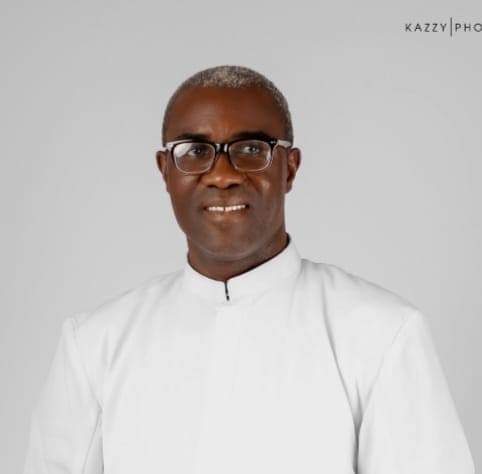
Civil Engagement
Fr. Richard OMOLADE
Recently, many were appalled that in the midst of chronic hunger, Oyo State had budgeted about 65 Billion Naira to renovate the Government house. Could this money be better spent? Oyo state would not be the first for this type of misaligned government spending and public good. We see similar scenario at the national level when huge sums are earmarked for Solar for the Presidential villa whilst our hospitals are without electricity to do basic medical procedures.
What is responsible for this state of affairs that presents the government as uncaring and ill-advised? My discussion with young staff of one of the ministries, an expert in Economic planning and budgeting, opened my eyes to an aspect of civil engagement that many in the society are in dereliction of their duty and those who have vested interest tend to push their own agenda and get away with it.
Before budgets are passed, communities are invited to make their input to what staff of the ministry have come up with. Many times, many people in the community don’t turn up or even know what is going on. Well, maybe ordinary citizens are not expected to be this involved and that is why they have elected representatives at various levels to fight for their interests. Many times, these people have proven to be too big to sit at such deliberations. Consequently, hardly do you find anyone fighting for the common man. It is expected that various communities or constituencies would have their representatives at such budget hearing and present the needs of their communities, because if these reps do not do it, no one will do it for them, and their constituencies will be the loser.
As is often the case, the different ministries will look at what is presented to them and see if it caters for their particular needs. If not, the different ministries will add their own provisions for the needs of their ministries. This is often what is sometimes referred to as ‘padding’. These are items not originally in the budget bill but added later by vested interests and they go into billions sometimes.
To go back to the renovation of the Government house, my young financial and economic expert said, the bill is the bill of the people, and the governor has no reason not to pass it, hence the renovation is what the people wanted, otherwise they would have criticized it and have it expunged. But many are nonchalant and by the time they realize it, the budget is already passed, and their beloved community has been passed over. I know it is easier said than done and governors have become thin-gods able to do as they please. But the crux of the matter is if many in the community will show more interests in the affairs of their States, there would be more robust engagement that will lead to better evaluation of proposals and the passing of items that will benefit the society more.
Democracy is the government of the people by the people and for the people. If it does not meet up to our expectation and standard, it means we all are culpable, that we have not done something right. Over time, the accumulated effect include the erosion of public trust in government. Since all of us cannot work in government, we must hold our elected officials more accountable to the community. They must periodically give account of their activities, so that community members will know what they have done and not done, and especially the challenges they face in working for the actualization of the societal goals. Disengagement from public discourse means that we are being short-changed because there will be no way to know what is going on and how to make our interventions.
Politicians will always pass budgets that will favour them, it is the citizens that must hold them accountable and responsible to them. If they cannot fight for their constituencies and bring tangible and much needed development, then these representatives have no business being in government. What we want from our representatives in government is civil engagement not apathy or disengagement. While vested interests continue to fight for their interest, our representatives must fight for the good of the community, if they are confused or do not know what the community needs, it is their obligation to go back to their communities and engage the people in sessions to discern the needs of the community. All of us must take seriously civil engagement, otherwise we leave it to our own detriment. Civil engagement helps us to identify and address issues of public concern and influence decision making. If we are not there in a quality way, then we cannot expect quality response and action.
As we begin preparation towards the next election, civil engagement must be a priority for all of us. We must take pleasure in community engagement and see it as a good purpose to pursue and take pride in it, only then will we communicate and collaborate with others and be committed to our communities. Remember, if you are not there, you cannot fight for anything. So, let us engage those who can fight for us and not for their private and selfish interests.



Leave a Comment